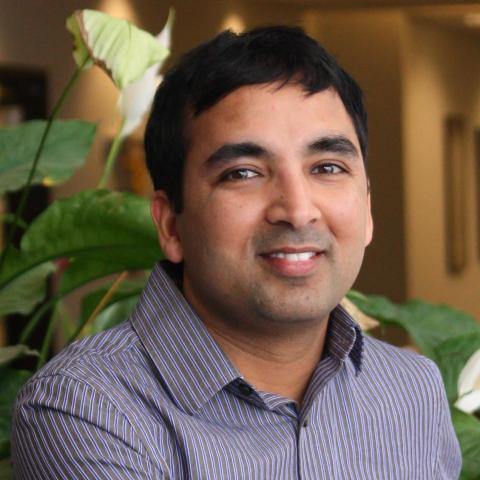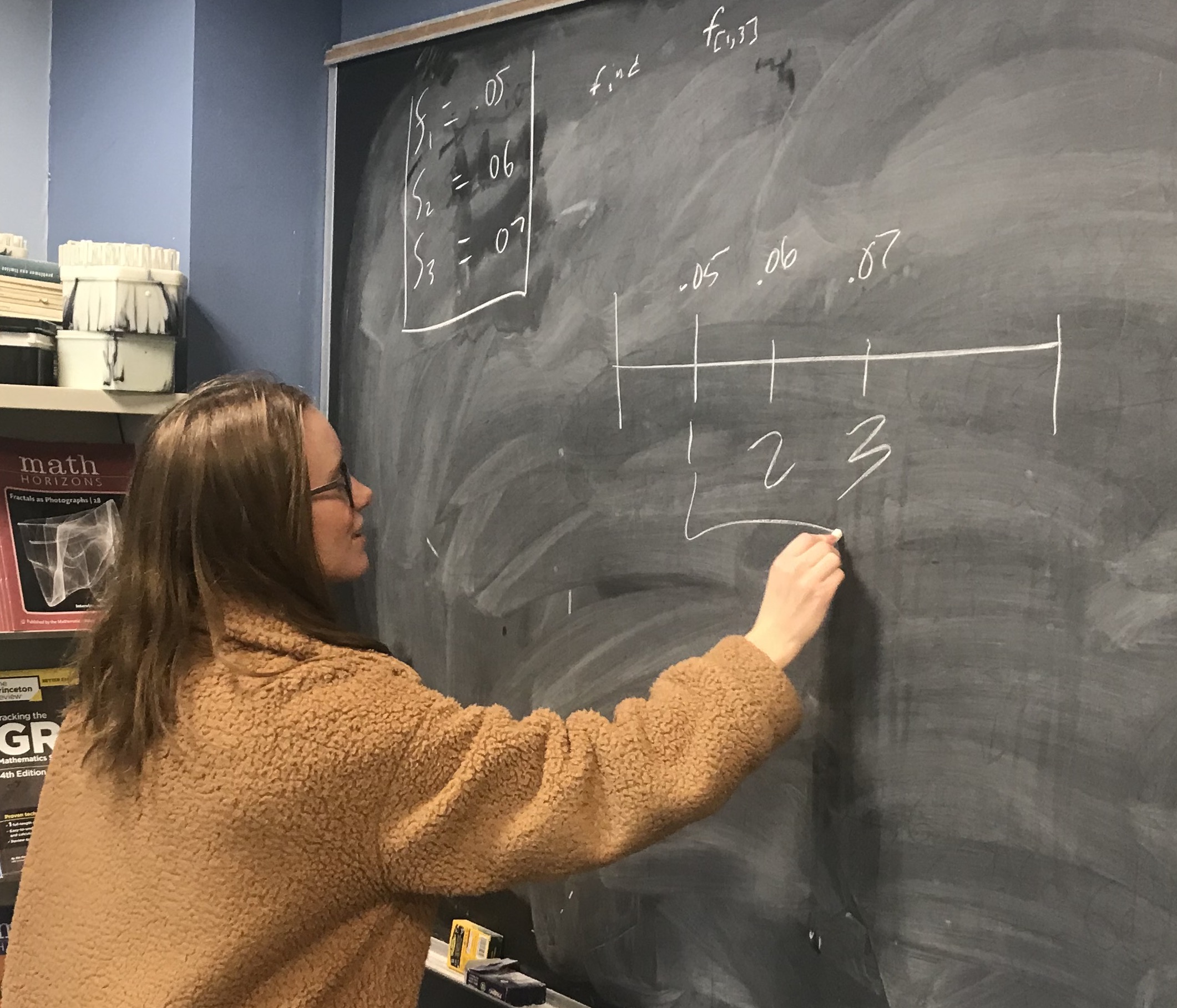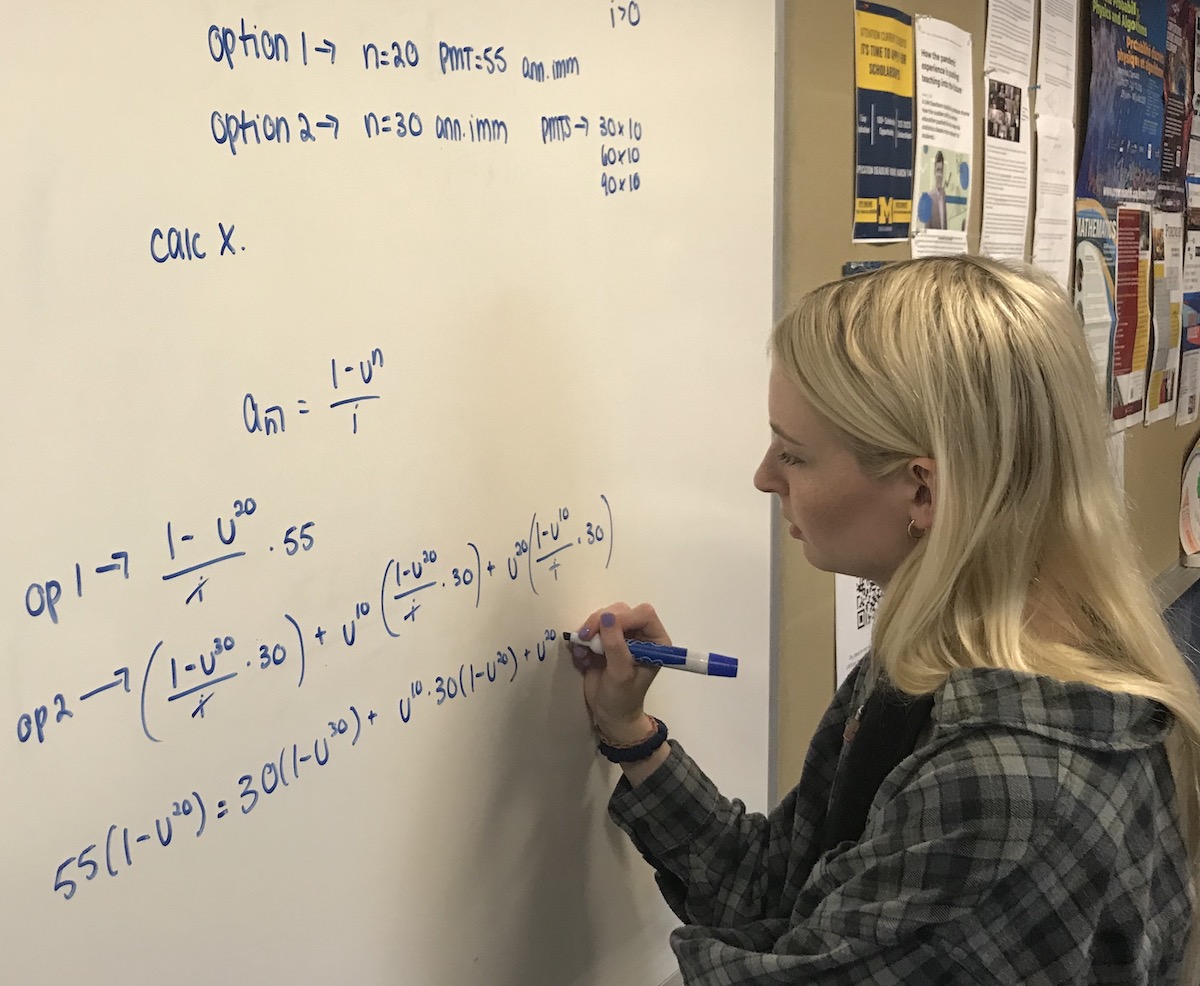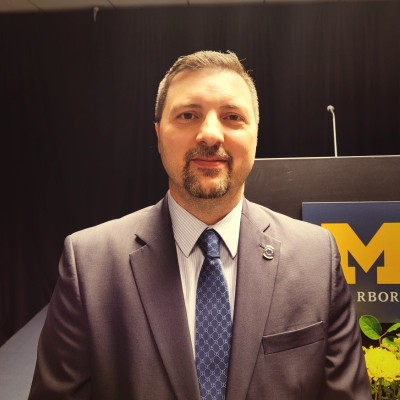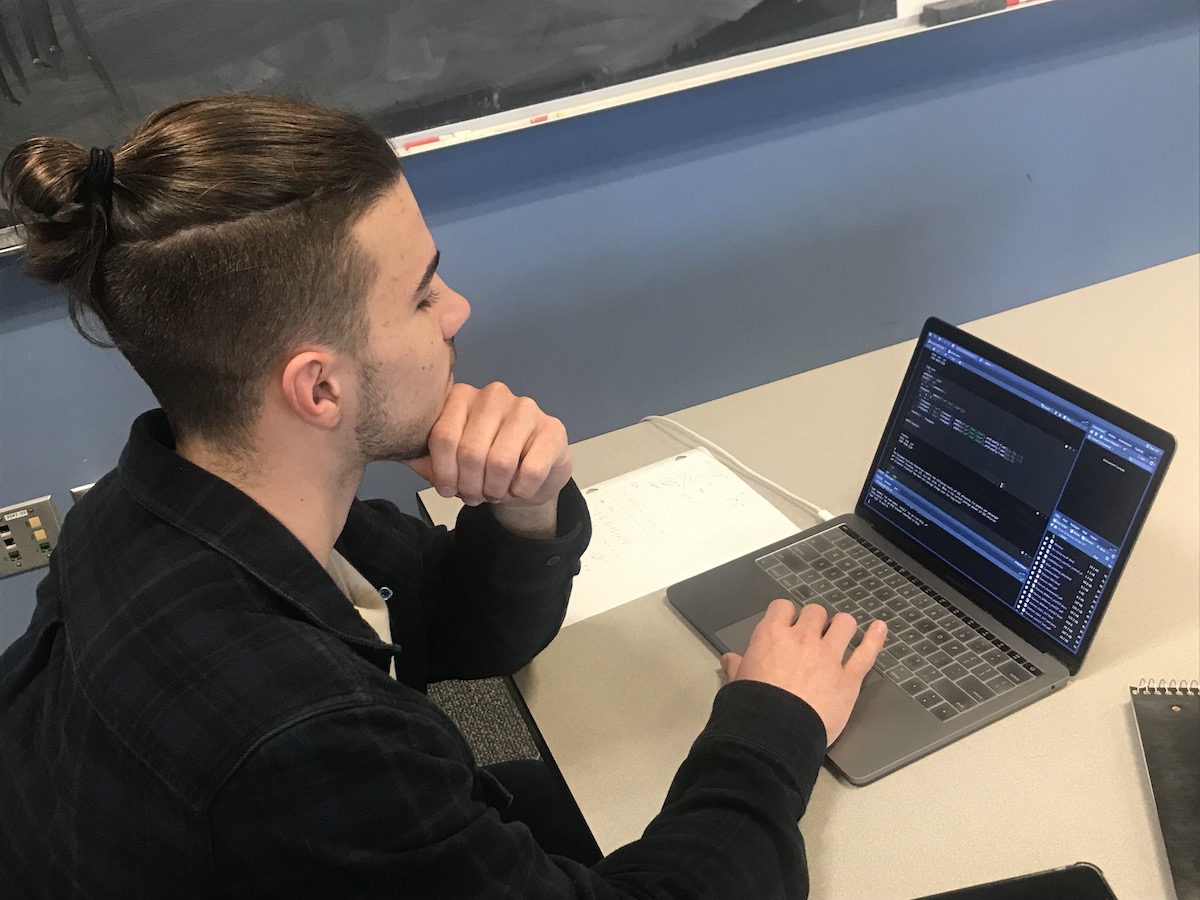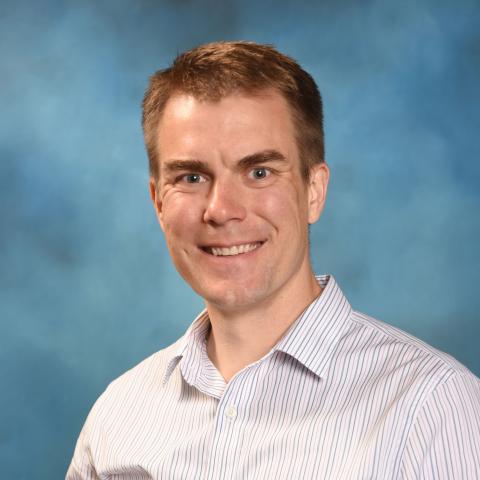
An actuary is a business professional who deals with the measurement and management of risk and uncertainty. What isn’t risky? Majoring in Actuarial Mathematics at UM-Dearborn.
According to the U.S. Bureau of Labor Statistics, median pay for actuaries is nearly $110,000 per year, and employment of actuaries is projected to grow 24 percent by the end of the decade, much faster than the average for all occupations.
And students in the UM-Dearborn Actuarial Mathematics program — a newer campus major that has a core curriculum of mathematics, statistics, economics and finance courses — say their professors are among the best they’ve ever had. They are energetic and inspiring, help students prepare for industry certification tests, connect them with work opportunities and more.
So what does an actuary do? A variety of things, said Associate Professor Mahesh Agarwal, who advises students in the Actuarial Mathematics program. For example, they are the people who are behind the scenes when it comes to products or services we interact with every day like our cars, homes and more.
“Actuaries analyze the financial cost of risk and uncertainty. They work with companies to help predict risk to minimize costs. For instance, behind every insurance quote you see, there is an actuary who has analyzed the likelihood and cost of an accident,” he said. “Their work to help predict risk is rooted in ensuring financial well being for businesses and people.”

